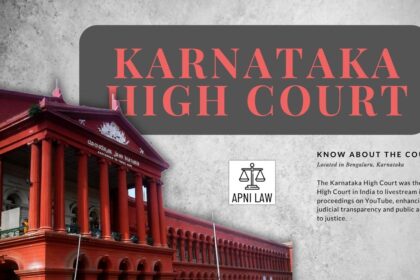Code: Section 51 BNSS – Examination of the Arrested Person
(1) When a person is arrested on a charge of committing an offence of such a
nature and alleged to have been committed under such circumstances that there are
reasonable grounds for believing that an examination of his person will afford evidence as
to the commission of an offence, it shall be lawful for a registered medical practitioner,
acting at the request of any police officer, and for any person acting in good faith in his aid
and under his direction, to make such an examination of the person arrested as is reasonably
necessary in order to ascertain the facts which may afford such evidence, and to use such
force as is reasonably necessary for that purpose.
(2) Whenever the person of a female is to be examined under this section, the
examination shall be made only by, or under the supervision of, a female registered medical
practitioner.
(3) The registered medical practitioner shall, without any delay, forward the examination
report to the investigating officer.
Explanation.—In this section and sections 52 and 53,—
(a) “examination” shall include the examination of blood, blood stains, semen,
swabs in case of sexual offences, sputum and sweat, hair samples and finger nail
clippings by the use of modern and scientific techniques including DNA profiling and
such other tests which the registered medical practitioner thinks necessary in a
particular case;
(b) “registered medical practitioner” means a medical practitioner who possesses
any medical qualification recognised under the National Medical Commission
Act, 2019 and whose name has been entered in the National Medical Register or a
State Medical Register under that Act.
Explanation of Section 51 BNSS
Section 51 BNSS outlines the legal procedures for the examination of a person who has been arrested and is suspected of committing a crime. The section ensures that any examination carried out on the arrested person is done lawfully, respects human rights, and provides vital evidence to aid the investigation.
-
Conditions for Examination: The section allows an examination of the arrested person if there are reasonable grounds to believe that such an examination will provide evidence that could aid in proving the commission of the offense.
-
Use of Force: In certain cases, the registered medical practitioner may use reasonable force to perform the examination, but this is done under strict legal guidelines.
-
Female Arrested Person: If the arrested person is a female, the examination must be carried out either by a female registered medical practitioner or under her direct supervision to ensure her dignity and rights are upheld during the process.
-
Scientific Examination: The law provides that the examination may include modern scientific tests, such as DNA profiling, hair and blood tests, semen samples, and other forensic methods, depending on the nature of the offense.
-
Prompt Reporting: After the examination, the registered medical practitioner must immediately send the report to the investigating officer to ensure that evidence is promptly used in the investigation.
Illustration
Example 1: Male Arrested Person
A person is arrested on charges of assault, and the police believe that there may be physical evidence, such as blood stains, that could link the person to the crime. A registered medical practitioner is requested to conduct an examination, which may include taking blood samples or conducting DNA profiling to gather evidence. The examination is carried out under legal procedures, and the results are forwarded to the police immediately.
Example 2: Female Arrested Person
A female is arrested on suspicion of a drug-related offense. To examine her, the police request a female registered medical practitioner to perform the examination under the required legal safeguards. The report is promptly sent to the investigating officer, and the examination may include analyzing substances found on her body using modern scientific techniques.
Common Questions and Answers on Section 51 BNSS
1. Can a medical practitioner use force during an examination?
- Answer: Yes, a registered medical practitioner is allowed to use reasonable force when necessary to conduct the examination, but only for the purpose of gathering evidence related to the commission of the offense.
2. What happens if the arrested person is female?
- Answer: The examination must be carried out by a female registered medical practitioner or under her supervision to maintain dignity and protect the rights of the female arrested person.
3. What types of tests are included in the “examination”?
- Answer: The examination may include tests such as blood tests, DNA profiling, semen analysis, hair samples, and other forensic techniques depending on the nature of the crime.
4. Who is considered a “registered medical practitioner”?
- Answer: A registered medical practitioner is a professional who possesses a medical qualification recognized under the National Medical Commission Act, 2019, and is listed in the National Medical Register or a State Medical Register.
5. How quickly must the examination report be forwarded to the police?
- Answer: The registered medical practitioner must send the examination report immediately to the investigating officer after completing the examination.
Conclusion
Section 51 BNSS plays a crucial role in ensuring that examinations of arrested individuals are carried out lawfully and systematically. It ensures that the evidence gathered through these examinations is used effectively in criminal investigations while respecting the rights and dignity of the accused. The use of modern scientific methods, including DNA profiling, ensures that the investigations are thorough and based on reliable evidence.








